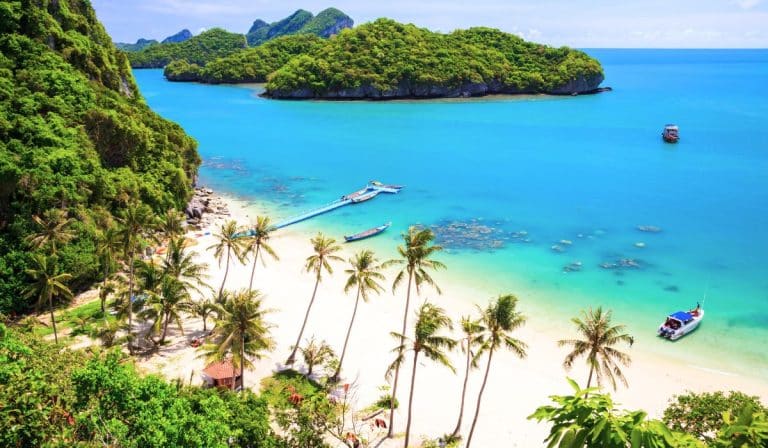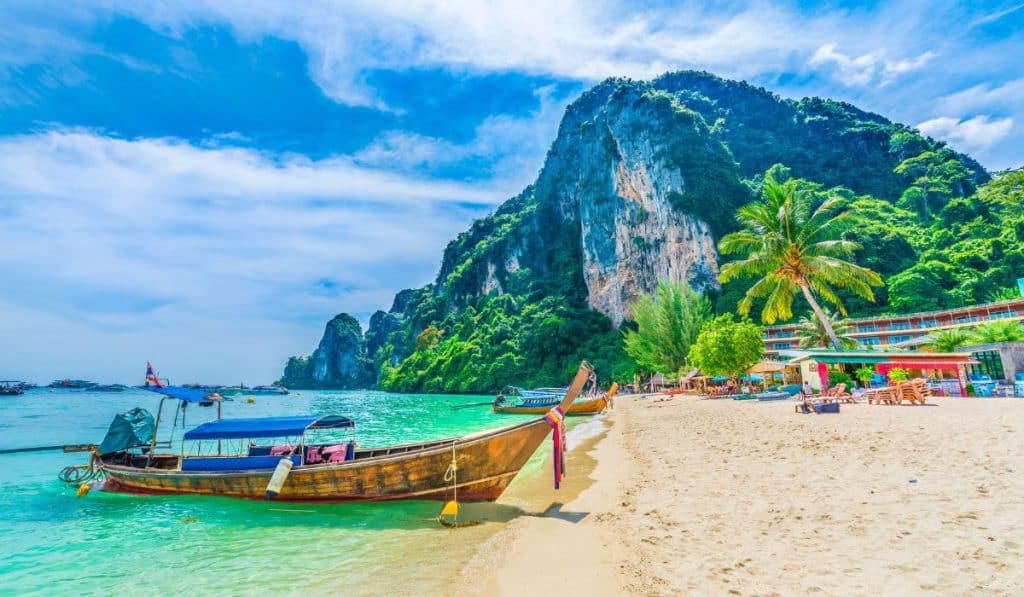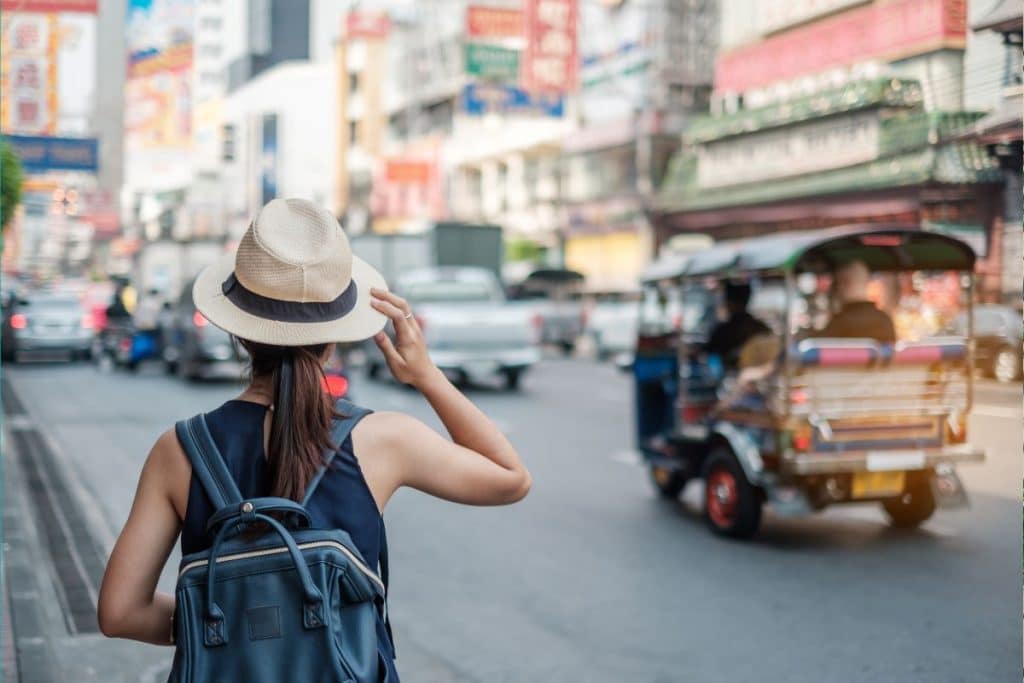According to reports, Thailand remains the safest country for travelers in Southeast Asia.
However, despite the relatively low crime rate in popular tourist areas, it is crucial to exercise caution and adhere to all safety recommendations.
One of the most significant risks to travelers in Thailand is motorcycle accidents, which are the primary cause of fatalities among tourists visiting the country. These accidents often occur on the winding and narrow roads of islands like Samui and Phuket.
Table of contents
LATEST NEWS from THAILAND:
February 26 – Thailand seeks to ban recreational cannabis by the end 2024
Health Minister Cholnan Srikaew informed reporters that Thailand is currently in the process of introducing a new law to impose penalties on the recreational use of cannabis.
Thailand made history as the first country in Asia to decriminalize marijuana. However, efforts to regulate the cannabis industry have faced challenges, leading some lawmakers to argue that the lack of regulation is contributing to drug addiction.
“It’s an issue of great concern to us, because the legal gap has led to free use of cannabis and there aren’t enough regulations to prevent misuse,” Cholnan said.
“This bill will control cannabis, especially its buds, just as strictly as we would a drug.”
While smoking cannabis in public is prohibited, individuals caught using it even within the privacy of their homes would face fines of up to 60,000 baht ($1670). Selling cannabis or its derivatives would lead to fines of up to 100,000 baht ($2780) or a one-year jail sentence.
Official Travel Advisories
U.S. Travel Advisory for Thailand
The U.S. State Department only advises Americans to exercise normal caution (Level 1 Travel Advisory) when in the country.
However, it urged citizens to reconsider travel to Yala, Pattani, Narathiwat, and Songkhla provinces due to civil unrest.
Canada Travel Advisory for Thailand
As outlined by the Canadian government, minor crimes like purse snatching, pickpocketing, and theft are prevalent. Reports indicate that thieves may use razors to slash purses and bags to access their contents.
There have been instances of passports and other travel items being stolen from luggage compartments beneath buses, particularly during extended journeys. Travelers are advised to opt for reputable transportation services.
Areas to avoid in Thailand
The regions of Yala, Pattani, Narathiwat, and Songkhla are presently advised as areas to avoid by both the U.S. Department of State and the Canadian government for travelers in Thailand.
These provinces, situated in the southernmost part of Thailand, are experiencing ongoing conflicts of a racial and ethnic nature. It’s recommended to stay in the northern regions for a safer experience.
Common Scams in Thailand
Thailand is generally considered a safe destination; however, the most commonly reported crimes involving tourists are related to scams. Continue reading to learn how to avoid falling victim to these fraudulent activities.
Taxi Overcharging: This is classic. Here, taxi drivers may refuse to use the meter and then demand an extra payment. It’s best to find another cab to avoid being overcharged.
Attraction is “Closed”: Some tuk-tuk or taxi drivers may falsely claim that your intended destination, such as your hotel or a tourist site, is closed or under renovation. They will then offer to take you to an alternative location (where they have a partnership), potentially resulting in overcharging or other scams. Politely insist on going to your original destination.
Nightlife Scams: Be cautious of nightclubs that try to overcharge for drinks or stage fake police raids to extort money. If you encounter such situations, don’t hesitate to ask for identification from any individuals claiming to be police officers.
Fake Money Exchange Fees: Some money changers may deceive tourists by offering less money than the actual exchange rate. To avoid this, check online for the current exchange rates and insist that they adhere to it.
Fake Gemstones: When buying gemstones, proceed with caution and make sure the stones are authentic before spending any money.
Tuk-Tuk Scams: Some tuk-tuk drivers may refuse to use the meter, resulting in higher fares than expected. To avoid this, negotiate and agree on a final price before beginning your journey.
Safety Tips for Thailand
Thailand is a safe country, but things can go wrong. Follow these recommendations to avoid any risks.
- Do not leave your drinks unattended: Sexual assault, robbery, and drink spiking incidents can and have occurred.
- Avoid showing off cash: Refrain from drawing unnecessary attention to yourself by keeping your cash discreet when making purchases.
- Refrain from discussing the King: It is advised not to mention or discuss the King, as any misstep could lead to legal consequences, including imprisonment.
- Steer clear of red-light districts: These areas are prone to various criminal activities such as robberies, drugging, and scams. Avoiding these districts can help mitigate risks.
- Abstain from drug use: Reports have emerged of drug dealers selling drugs to tourists and then reporting them to the authorities. This often results in hefty bribes.
- Do not hand in your passport: Some rental businesses may request your passport as collateral. Find another company to prevent the potential loss or theft of your passport.
- Always carry cash: It’s advisable to have a backup cash reserve in case of emergencies, such as losing your bank card.
- Backup your documents: Make copies of your travel documents and store the originals securely in your accommodation’s safe.
- Avoid travel to regions bordering Cambodia, Myanmar, and Malaysia: These areas are marked by violence, armed conflict, and landmines, making them hazardous. Only travel to these regions if absolutely necessary.



